
As we stand on the brink of 2024, the business world is experiencing a profound transformation, particularly in the sphere of customer engagement. In a time where a staggering 20.17 million companies, which represent 60.75% of all U.S. businesses have now made CRM software an integral part of their operational DNA. This massive adoption underscores a crucial imperative: the need to masterfully optimize these systems.
With the global CRM software market poised for a robust 10.68% growth from 2023 to 2028, reaching a monumental market volume of US$131.90 billion, it is clear that the path to business excellence is inextricably linked to the mastery of CRM dynamics.
This blog unravels the art and science of CRM optimization in an era where digital agility and customer-centricity are the foundations of successful businesses. We delve into CRM customization, highlight the critical need for unified data standards, reveal the transformative impact of automation, probe the insights offered by analytics, and focus on enhancing customer experience.
Proper Installation & Customization
The journey to CRM efficacy begins with its correct installation and bespoke customization. A one-size-fits-all approach is a recipe for underperformance. For example, automotive leaders like Toyota and BMW exemplify the benefits of tailored CRM systems. They demonstrate that taking the time to align CRM functionalities with specific organizational needs leads to enhanced operational efficiency and superior customer engagement. Practical steps include phased rollouts, department-specific training, and leveraging customization options.
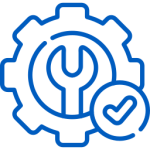
Establish Data Standards
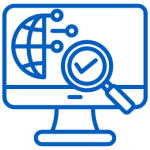
Post-installation, establishing and maintaining high data quality standards becomes paramount. Uniform data practices across departments ensure clear communication and effective data analysis. For instance, global travel company Expedia, powered by Salesforce CRM, leverages uniform data standards to gain actionable insights across its sales, support, and marketing teams, significantly enhancing customer service and targeted marketing efforts.
Embrace Automation
Automation in CRM systems acts as a catalyst for efficiency and accuracy. It ranges from automating routine tasks like data entry to more complex operations involving sales and customer support workflows. Coca-Cola’s use of CRM automation in managing inventory and production chains illustrates how automation can transform business processes, enabling real-time updates and predictive analytics for better decision-making.
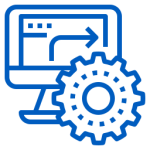
Leverage Analytics for Insightful Decision-Making
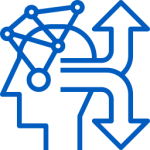
CRM analytics are essential in transforming data into strategic business insights. Avaya’s use of Salesforce CRM analytics exemplifies this. They integrated analytics within their CRM workflow, enhancing their ability to track customer engagement and sales performance, and tailor their product offerings. This efficient use of analytics has been crucial for Avaya’s growth and innovation, achieved without the need for extensive custom development.
Prioritize the Customer Experience
Enhancing the customer experience is key to CRM optimization. IKEA demonstrates this through their CRM strategy, which is focused on knowledge management, combining technology with a strong emphasis on people and processes. Regularly updated internal manuals and detailed analyses of customer interactions through their CRM system exemplify IKEA’s commitment to continuous learning and customer service innovation.
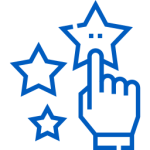
Focus on Goal-Specific CRM Utilization

A clear vision for CRM use is essential. Whether for boosting sales, enhancing marketing effectiveness, or improving customer service, each goal demands a specific approach within the CRM services framework. Hospitality firm TLC DigiTech, for instance, uses Salesforce CRM to foster close customer relationships, supporting their broader business objectives of delivering delightful customer journeys and boosting loyalty.
Empower Your CRM Optimization with Forsys Solutions
Choosing Forsys for your CRM optimization needs means powering up your sales and business performance with a top-tier salesforce partner renowned for its Salesforce expertise in delivering data-driven insights and automation solutions. With an impressive 4.9/5 customer satisfaction rating in Salesforce projects, Forsys stands out in its commitment to excellence.
Our approach begins with a detailed audit, analyzing your processes, goals, and applications to craft a comprehensive strategy that aligns perfectly with your organizational needs. We excel at designing tailored CRM solutions, paying close attention to your specific business requirements, data management, quality assurance, user experience, and scalable architecture. Forsys is also adept at modernizing business processes, identifying and upgrading outdated practices with cutting-edge methods. Their proficiency in data integration and migration ensures a smooth transition of your data into the digital CRM environment.
Recently, Forsys boosted a chemical manufacturer’s sales productivity by 44% through lead-to-quote automation with Salesforce CRM. Discover the details of their entire transformation journey here.
Conclusion
For businesses to excel in the rapidly evolving marketplace, optimizing their CRM systems for customer-centricity, multichannel engagement, and data-driven decision-making is imperative. Incorporating AI, automation, and adapting to remote work environments are not just trends but necessities. CRM has evolved from a mere tool to a critical foundation for building robust customer relationships and driving significant growth.
To understand this transformation more deeply, read our article on the ‘Advantages of Choosing Top Branded CRM Over an In-House Solution’ to discover how a top-tier CRM can be a game-changer for your business.
Don’t just adapt; lead the change. Click here to explore the future of CRM with us.

